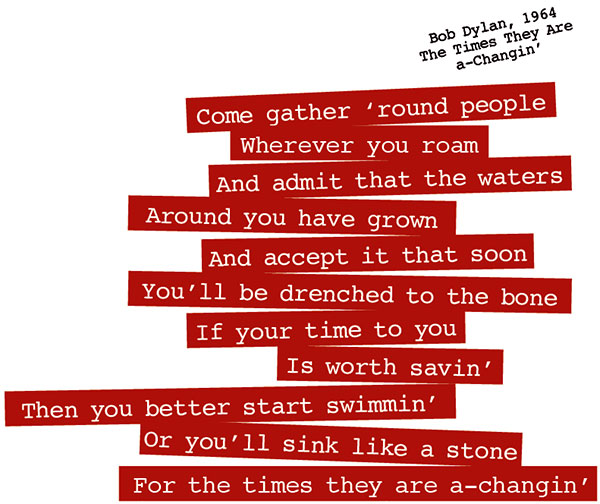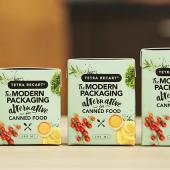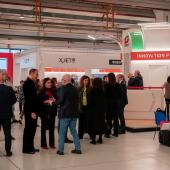The Times They Are a-Changin’
“In the wake of the huge success enjoyed by the last edition of IPACK-IMA, that took place last May, and with the change of hands of the share package of the company Ipack-Ima SpA, ceded by Centrexpo SpA to Fiera Milano SpA, Guido Corbella’s mandate as CEO draws to a close…”.
Thus ran the communiqué that, July 16 2015, officialised what was already known by many. A few days before the event, we met up with him: serene and satisfied due to years of time and effort well spent, but also - no surprise to us - as active and feisty as ever. Stefano Lavorini
The times they are a changing, Bob Dylan sang in 1964, and what was forecast (hoped for?) by many, but which few people believed would occur, has actually happened.

Guido Corbella, after forty years of activity in the sector of fairs and associations, has withdrawn from all his posts.
It cannot be denied that his long professional career is studded with happy intuitions on the evolution of the market, associative models and trade fair business.
As head of Acimga, he has featured in and formed the history of the graphic arts and converting machine sector. And it is thanks to his commitment that the Italian Packaging Machine Constructor’s Association Ucima came into being, headed by him over many years: a coincidence that, over the years has led to an ever closer synergy between the two sectors.
As CEO of the trade fair company Centrexpo and Ipack-Ima he also redesigned the printing and packaging show panorama for Italy and also beyond, with tangible results.
Feisty and determined, capable of unconventional visions, these traits have helped him both in achieving consensus and in making agreements, this too at international level, as well as arousing contrast and dissent.
The account of his life coincides at least in part with the Italian postwar boom, with the era of the deeds of the great captains of industry in the print sector (Cerutti, Simoncini, Grignolio, Depetris, Rossini) and in that of packaging (Taino, De Martis, Vacchi): people who invented Italian technology, bringing it to the highest levels, in a line of development featuring evermore intense and successful relations at an associative and fair level.
During our talk, Corbella drew some cursory conclusions and answered our questions with no holding back: «I consider my experience in the world of trade fairs as definitively over, having attained my set objectives. I aboveall refer to the success of the last edition of Ipack-Ima and related fairs, thanks also to the new format appreciated by all stakeholders and, in particular, by the visitors. Secondly, faithful to the commitment taken on, I have contributed to bringing the fair group under my responsibility into a context that, going beyond associative references, is capable of offering solid growth prospects: Fiera Milano is in actual fact the most important fair operator on the Italian scene».
What were the significant factors that featured in your many years of “militancy” in the trade fair field?
I think aboveall that we were able to comprehend ahead of time the importance of designing the fairs looking at the market, or that is at the visitors and not at the exhibitors. An example for all is how Ipack-Ima’s has been divided into business communities, something that has featured for some years now.
Likewise, and it is something that I am particularly proud of, we strove to appoint figures that we might define “visitors of excellence” to the presidency of our shows: Alberto Bauli, Paolo Barilla, Marco Pedroni for Ipack-Ima, Simona Michelotti for Converflex, Sergio Dompé for Pharmintech, Francesco Pugliese for Fruit Innovation.
This focus on the visitors has led us in time to achieve highly specialized vertical fairs: Converflex, packaging and converting technologies and, following that, Pharmintec, pharmaceutical processes and packaging, to reach the vertical fresh Meat-Tech amd Dairytech.
Another qualifying feature has been the creation of an operative structure dedicated to the promotion and management of the fairs: this was the basis on which Centrexpo was founded, immediately featuring a fair company owned not only by machine builders association (Acimga 80%), but also by that of the printers (Assografici 20%).
You were director of Acimga from 1974 onwards and subsequently, since its creation and for many years, director of Ucima. How and why did did you hold these posts simultaneously?
Thanks to the foresight of some Acimga presidents, in ’81 we concretized our interest for the packaging sector, planning the first edition of Converflex.
Aware that we were dealing with a sector undergoing extensive growth, in ’84 we organized Moscow Upak-Italia, with the result, also thanks to the success attained, of nearing the packaging machine builders, then grouped under Anima.
We can say that that very event led to the creation of Ucima as an independent association, thanks also to the joint venture agreement with Acimga: the associations kept their own identity, independence and directive organs, but the operative structure, including the director, were shared.
We thus created a model “contiguous to the market”, initially opposed by Confindustria, that though has worked well in the long run: over 22 years it has in fact enabled the development of a strong synergy in the print sector (that, with the crisis of the Italian offset machine builders, was shifting towards printing on packaging, Ed.) and the world of packaging. Synergy that, in the trade fair field, resulted in 1992 in a new show focused on packaging and wrapping (Packintec) and then, thanks to the independent resources of Centrexpo (accruals made during the years from the organization of Gec and Grafitalia, Ed.), in the gradual purchase of the company Ipack-Ima and the fair of the same name.
Among the many details of those years, I recall the fact that, in ’87, Acimga ceded 10% of the shares of Centrexpo to Ucima, thus avowing Centrexpo’s status as a landmark trade fair organization covering both segments.
How do you see the current role of the associations in the trade fair field?
In the postwar period, the sector associations were quick to understand the importance of the sector fair shows, and were decisive in giving rise to the first events alternative to the generalised trade fairs of the times.
Over these last twenty years, also due to the crisis in representation, many ceased to see trade fairs as a business on its own, reducing it down to a simple source for supporting associative activities. On top of that, a vision too much tied to Italian manufacturing, for a long time put the brake on the internationalization of shows, acting as an obstacle to the presence of foreign exhibitors. Today the trade fair world is highly competitive and this demands managerial vision different to that needed to run an association, the latter inevitably more linked to political logic rather than that of marketing. That, may it be clear, does not totally exclude the fact that an association might also be a valid fair organizer, provided it is capable and willing to manage things, taking on the entrepreneurial risks associated with the same.
On the other side of things, fair organizer have to realize that the true stakeholders are the visitors and exhibitors, and ever less so the representative organizations, thus avoiding the dispersion of resources that do other than favor the encounter between supply and demand.
Here Acimga has always featured as an exception because it interpreted the fairs as an area of business to be managed not in the associative, but in an entrepreneurial view of things. And this thanks to a long series of presidents/industrialist who have brought a true spirit of enterprise into the association, and who were willing to plough back the profits generated by the organization of the fairs into the selfsame activity as such.
Today though, also when speaking of fairs, one cannot fail to consider the changes in the global competitive scenario. By now the world is everybody’s market…
I am convinced that the most effective partners for accompanying companies in the process of internationalization are the fair organizers; they are in fact interlocutors capable of rating and choosing the most interesting shows in the various counties, organizing the presence of companies during the events, guaranteeing - extremely important - the participation of organizations pertaining to the entire supply chain and not only competitors. A partner capable of also inventing shows in the most promising markets (the specific reference is to Upak-Italia, East Afripack, to partnership with America’s PMMI and the Italian representation of the trade fair PackExpo, Ed.). But things do not stop here. As we have done in the recent past, the fair organization can promote and offer the operative support of the growth of networks of companies, as well as aggregating complementary companies in common projects.
Centrexpo and Ipack-Ima are depositaries of a wealth of knowledge and professional experience in the trade fair field spanning decades. In your opinion, what is going to change with the new ownership set-up.
In the field of the machinetool industry, Centrexpo and Ipack-Ima are the group with the most diversified number of fairs, with the most square metrage sold with a high capacity to plan and innovate. I sincerely hope that Fiera Milano will consolidate the historic activities and aboveall fully develop all the initiatives recently implemented, investing in the start-ups East Afripack, Meat-Tech, Dairytech, Fruit Innovation.
And what is more, Fiera Milano, in buying up Ipack-Ima’s “patrimony”, seems to confirm a strategic choice evermore heading in the direction as an independent fair organizer.
Nowadays in fact, trade fair structures that exclusively host shows are either part of a context that does not allow those heading public utilities to also organize events, typical to the English-speaking world, or they find themselves in a weak position.
The German model is historically the most successful, and among its success factors lies the fact that the turnover of the huge fair bodies is mostly ascribable to their own independently organized shows, and only marginally to shows hosted in their structures organized by others.
I hope here that the peculiarities of a concern that has always had speed of reaction to the changes of the market and a great creativity in proposing new models are highlighted and exploited to the full.
The current structure has wide-reaching competencies, covering both the specific sector and in terms of trade fair business in general.
Failing to offer prospects of continuity to people would constitute an unforgiveable dispersion of resources.
On my part, I am thankful to all those who have worked with me for the precious support that has enabled the attainment of many, important and “inconceivable” achievements».

















